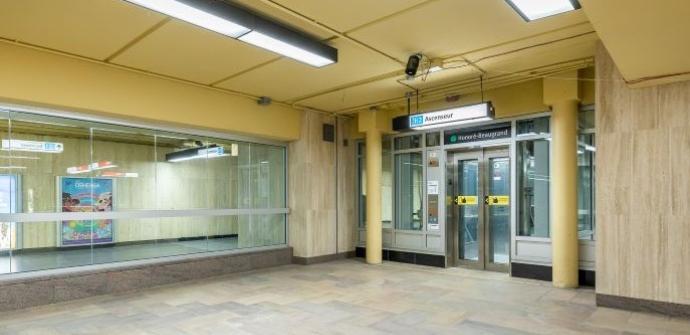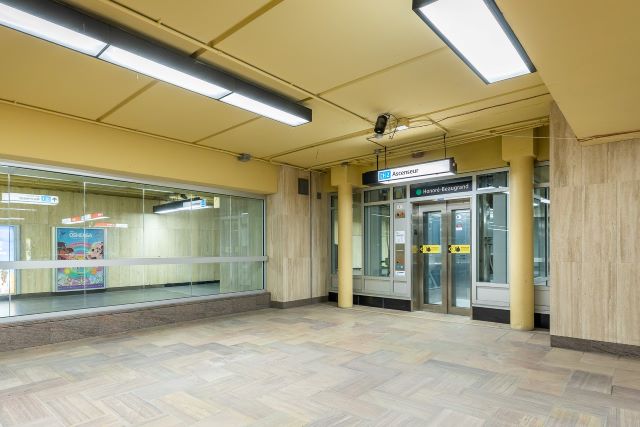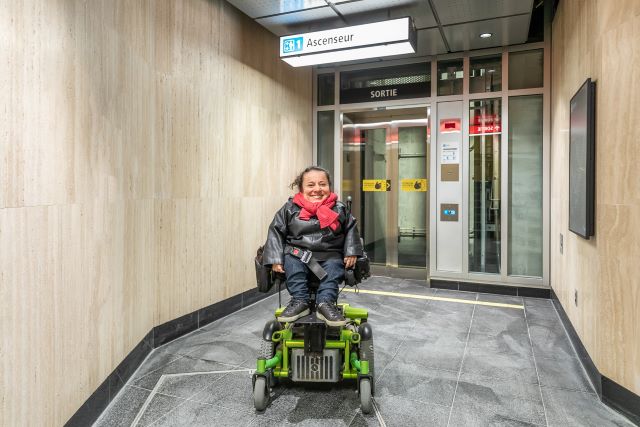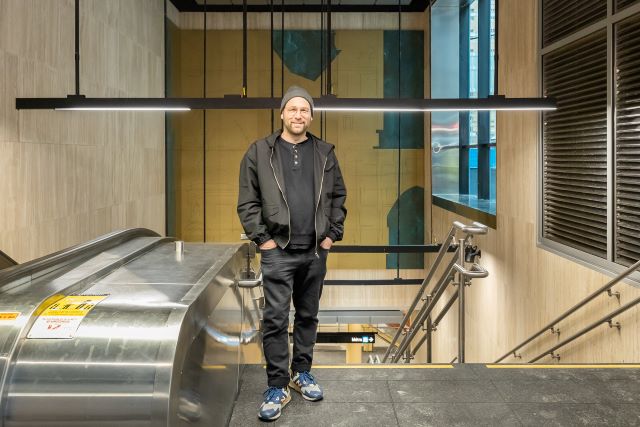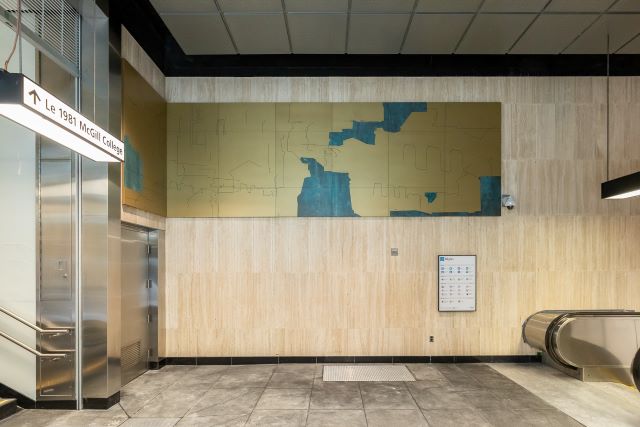McGill station now has fully operational elevators.
The Société de transport de Montréal (STM) is announcing today the commissioning of a new elevator at McGill station, allowing access to the Angrignon platform from the street. By combining this elevator with the one connecting the mezzanine to the Honoré-Beaugrand platform, which was commissioned last fall, the station officially becomes the 26th station in the métro network to be universally accessible.
With tourist season fast approaching, the newly accessible station will benefit not only customers with limited mobility but also older adults, families with young children, and travellers looking to enjoy the many attractions of downtown. It will also be a future accessible transfer point with the REM station currently under construction.
“The commissioning of the elevators at McGill station is of particular significance to the STM, as this is one of the busiest stations in the network,” says Éric Alan Caldwell, Chair of the STM Board of Directors. “The new elevators are bringing accessibility to one of the province’s biggest hubs of business, culture, tourism and education, and we at the STM see it as another way of contributing to the revival of downtown.”
The accessibility work, which began in 2020, was part of a larger overhaul of the station. In addition to installing the two elevators, the project involved replacing the waterproofing system covering the station’s underground roof, renovating three of the six existing entrance buildings, improving natural ventilation, and constructing an entirely new entrance building. Located at 705 De Maisonneuve Boulevard West, the new built entrance building houses the elevator that connects the station to street level. It was built because the existing entrance buildings were too narrow to accommodate this type of infrastructure.
With a $58.4 million price tag, the work was completed within budget and was made possible by funding from the ministère des Transports et de la Mobilité durable du Québec.
The work comes on the heels of another series of maintenance projects undertaken to revamp the entire station over the last ten years. These included the restoration of the station’s existing artwork, electrical systems, ventilation systems, train platforms, wall finishes and lighting, as well as some structural work.
“This essential work is necessary to ensure the métro network’s longevity,” says Caldwell, “and helps provide our customers with a consistently reliable, comfortable and safe transit experience. Well-maintained facilities are the foundation of quality public transit service.”
Vestiges by Mathieu Lévesque
New public artwork was also unveiled at the station as per the Politique d’intégration des arts à l’architecture et à l’environnement des bâtiments et des sites gouvernementaux et publics. The piece is titled Vestiges and was created by artist Mathieu Lévesque. Installed in the entrance building at 811 De Maisonneuve Boulevard West, the three-part pictorial piece commemorates the architectural heritage of the Golden Square Mile, the neighbourhood where the métro station is located. The webs of fine lines etched into the artwork’s surface depict architectural fragments drawn from photographic archives and engravings documenting buildings in the area, almost all of which have disappeared.
Photos
Click on the image to download it in high resolution. Photo credits: Julien Perron-Gagné.
1st photo: Mme Laurence Parent,Borough Councillor for the De Lorimier district and Vice-Chair of the STM Board of Directors at the McGill station when elevators were commissioned.
2nd photo: The artist Mathieu Lévesque with his art piece Vestiges.
Other accessibility worksites in progress
There are currently five other accessibility projects underway in métro stations. The STM aims to have made 30 stations accessible by 2025. The Accessibility program is made possible through the additional funding announced by the federal and provincial governments to speed up accessibility work.
